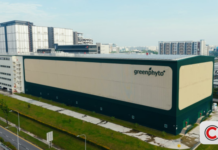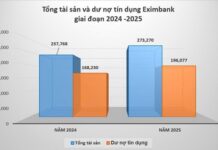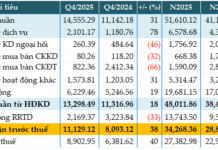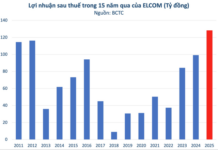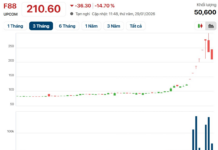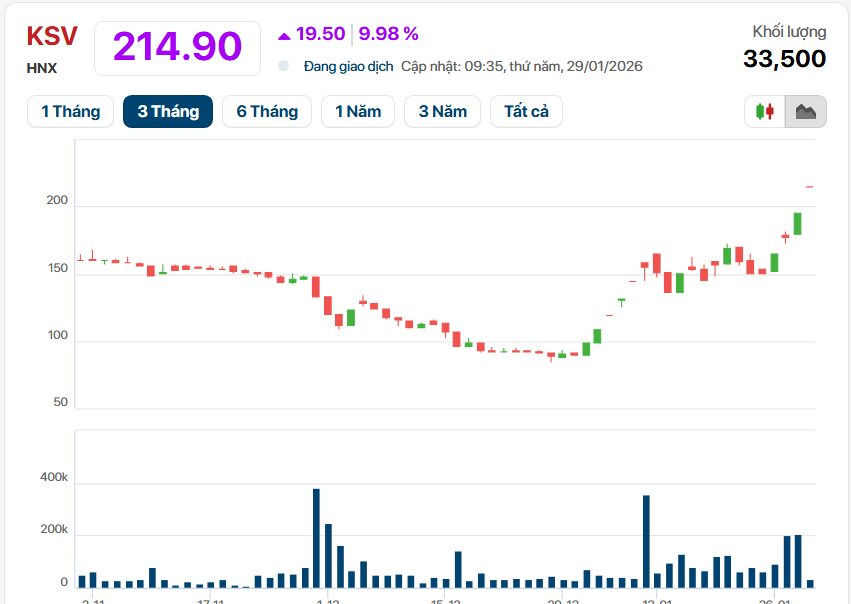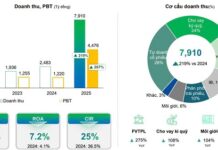The Evolution of Private Sector Development
Professor Dr. Ngo Thang Loi, from the National Economics University, asserts that the development trajectory of Vietnam’s private sector is well-defined, encompassing notable achievements, existing limitations, and breakthrough solutions.
Prior to the 1986 Renovation, the private sector had minimal room to flourish.
The second phase, “Take-off (1986-1999),” commenced with Decision 27 by the Council of Ministers in 1988, officially recognizing private enterprises. Legislative frameworks such as the Company Law and the Private Enterprise Law of 1990 provided legal grounds for the establishment of tens of thousands of businesses.

The development trajectory of Vietnam’s private sector is evident across different stages.
The third phase, “Soaring (2000-2014),” witnessed more robust activities with the enactment of the Enterprise Laws of 1999 and 2005, along with the Investment Law of 2005.
The fourth phase, “Acceleration” (from 2014 onwards), marked the affirmation of the private sector as a development driver, with the number of enterprises surpassing 900,000, alongside millions of business households.
Finally, the fifth phase, “New Turning Point,” cemented the private sector as the primary engine for national economic growth, as reflected in crucial resolutions such as Resolutions 57, 59, 66, and 68 during 2024-2025. This signifies a shift in thinking from “supplementary” to “central” in the design of national policies.
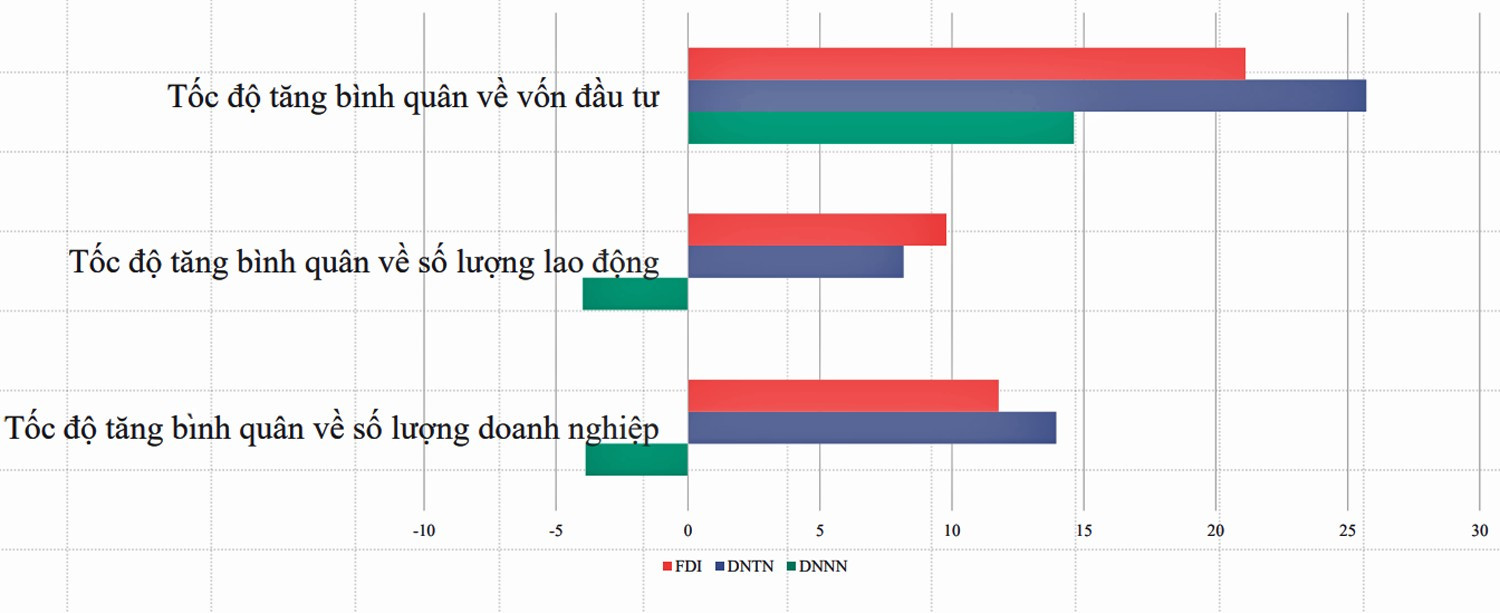
Average growth rate comparison between private and state-owned enterprises in terms of %.
Reflecting on the remarkable milestones of private sector development, Mr. Loi highlights that, in terms of resource scale and economic growth, the Vietnamese private sector exhibited outstanding performance from 2011 to 2023. During this period, it achieved an average annual growth rate of 14.7% in the number of enterprises (a 2.5-fold increase), 25.3% in investment scale (a 4-fold increase), and 8% in the labor force (a 1.5-fold increase).
With such rapid expansion in resource scale and the number of enterprises, by 2023, the private sector accounted for 53.4% of total social investment, employed 82% of the active labor force in the economy, contributed 38.6% of total pre-tax profits generated by all enterprises, and generated 51% of total employee income within enterprises. Additionally, it contributed over 42.3% of the total state budget revenue.

According to Mr. Loi, when considering GDP growth, the private sector achieved an average annual growth rate of 6.3% during 2011-2023. This figure surpasses the national economy’s average of 5.48% and constitutes the most significant contributor (averaging 50% annually, reaching 57% in 2023) to the country’s GDP growth. The state-owned sector contributed 17%, the foreign-invested sector 20%, and the remaining came from taxes. In 2023, the private sector (including business households) accounted for 43% of the country’s total GDP.
Between 2011 and 2023, there was a significant increase in the number of large-scale private enterprises with high business efficiency. As of 2023, 315 private sector enterprises were among the top 500 largest enterprises in Vietnam. Within the private sector, the top 500 enterprises (VPE500) constitute only 0.075% of the total number of private enterprises but contribute significantly, employing 12% of the workforce, holding 28% of total assets, and generating 18.4% of the revenue of private enterprises nationwide.
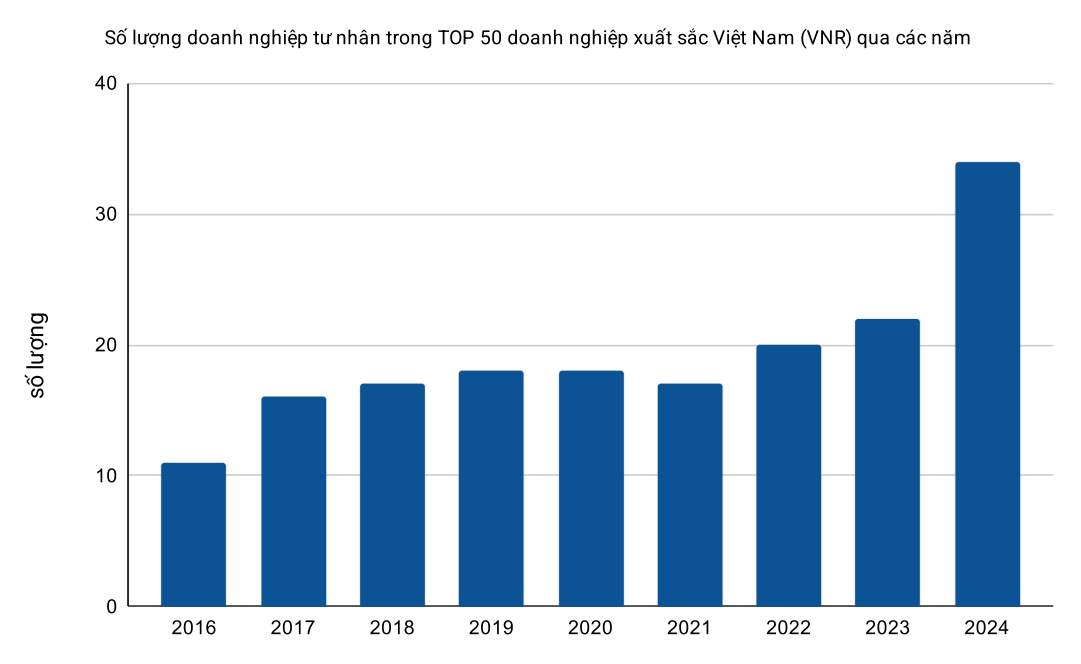
Number of private enterprises in the TOP 50 VNR over the years (data source: https://vnr500.com.vn/). Graphics by Loc Lien.
The private sector’s “accomplishments” thus far have solidified its position. Firstly, it has demonstrated superior growth rates in terms of average investment, labor force, and number of enterprises. Secondly, this sector has made significant contributions to national economic growth, generating 85% of total employment, owning 50% of total capital, contributing 35% of budget revenue, and accounting for 43% of GDP.
These achievements underscore the private sector’s role as the “backbone” of the economy, creating tens of millions of jobs and providing substantial capital for socio-economic development.
Breaking Barriers for the Private Sector
In conversation with
Tien Phong
journalists, Dr. Ha Huy Ngoc, Director of the Center for Policy Research, Strategy for Local and Territorial Economics, Institute of Vietnam and World Economics, highlights that after 80 years since the establishment of Vietnam, there are over 930,000 operating enterprises, of which 98% are small and medium-sized. Additionally, there are approximately 14,400 cooperatives and more than 5 million business households. In 2024, the private sector contributed approximately 50.4% of GDP, generated about 30% of state budget revenue, and employed around 85% of the labor force.
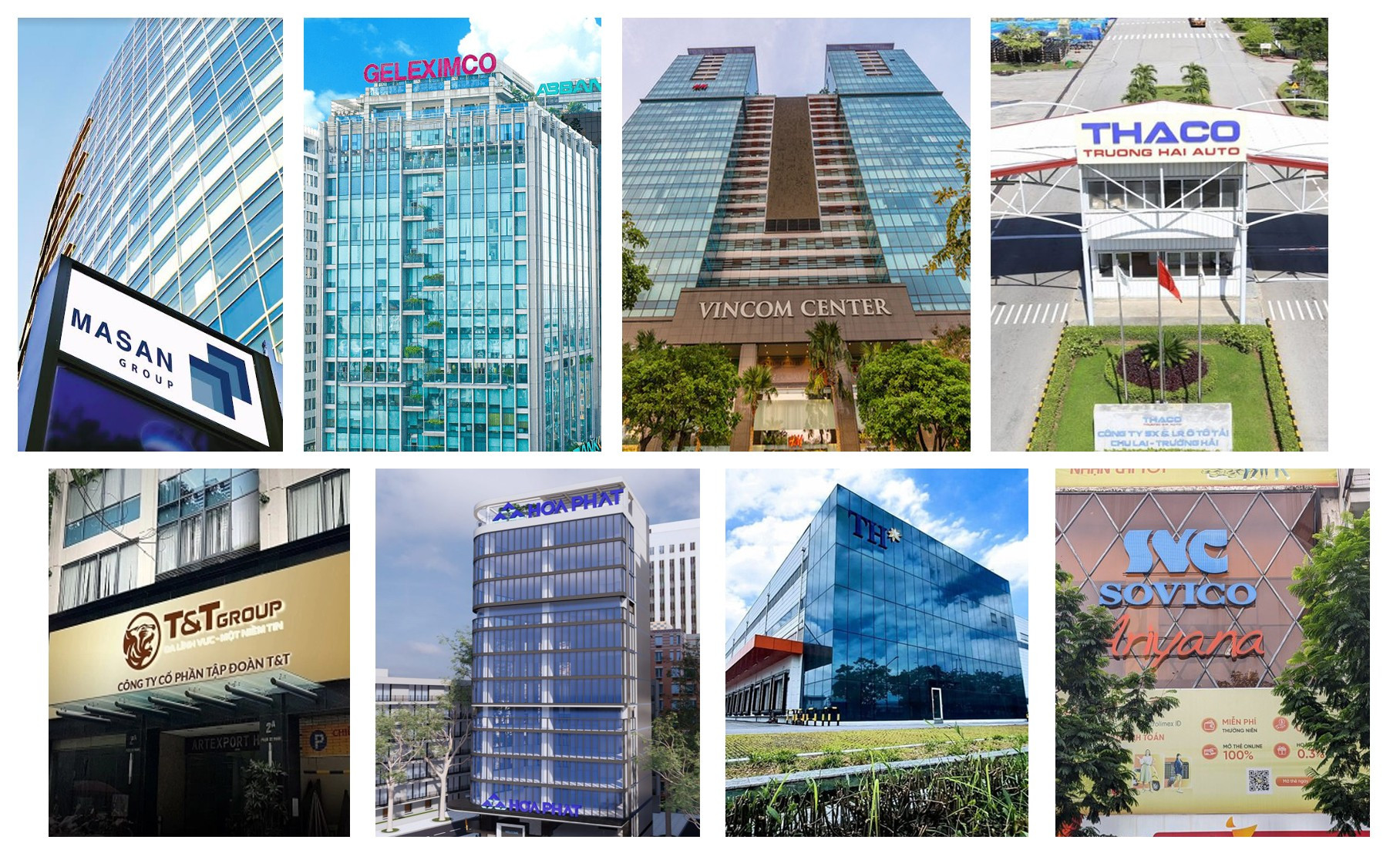
Many private enterprises in Vietnam have achieved a large scale. Image by Loc Lien.
A significant number of private enterprises have attained a substantial scale, possessing the capacity to lead the country’s development. These enterprises excel in terms of capital scale, technological expertise, modern enterprise management, and brand recognition in regional and global markets. Notable examples include Vingroup, SunGroup, Thaco, Hoa Phat, TH, T&T, KN Holdings, Geleximco, Minh Phu, Masan, Sovico, TH True Milk, and Dien Lanh.
A Crucial Driver of the Economy
Dr. Ha Huy Ngoc analyzes that since the initiation of the Renovation process, the Party’s perspective on the private sector has been consistent and unwavering. It has evolved from non-recognition to acknowledgment but without due importance, and eventually, to recognition as one of the crucial drivers of economic growth and sustainable national development. This transformation in perception is akin to a revolution, spanning several decades.
The documents of the Sixth Party Congress in 1986 stated: “Utilize private capitalism in certain fields, industries, and trades.” However, the documents of the Seventh Party Congress in 1991 asserted: “Private capitalism is allowed to develop without restrictions on scale and scope of operation in industries and trades that the law does not prohibit.” Subsequently, the documents of the Eighth Party Congress in 1996 clarified: “Private capitalism has the potential to contribute to national construction.” The documents of the Ninth Party Congress in 2001 emphasized: “Encourage the broad development of private capitalism in production and business sectors that the law does not prohibit.”
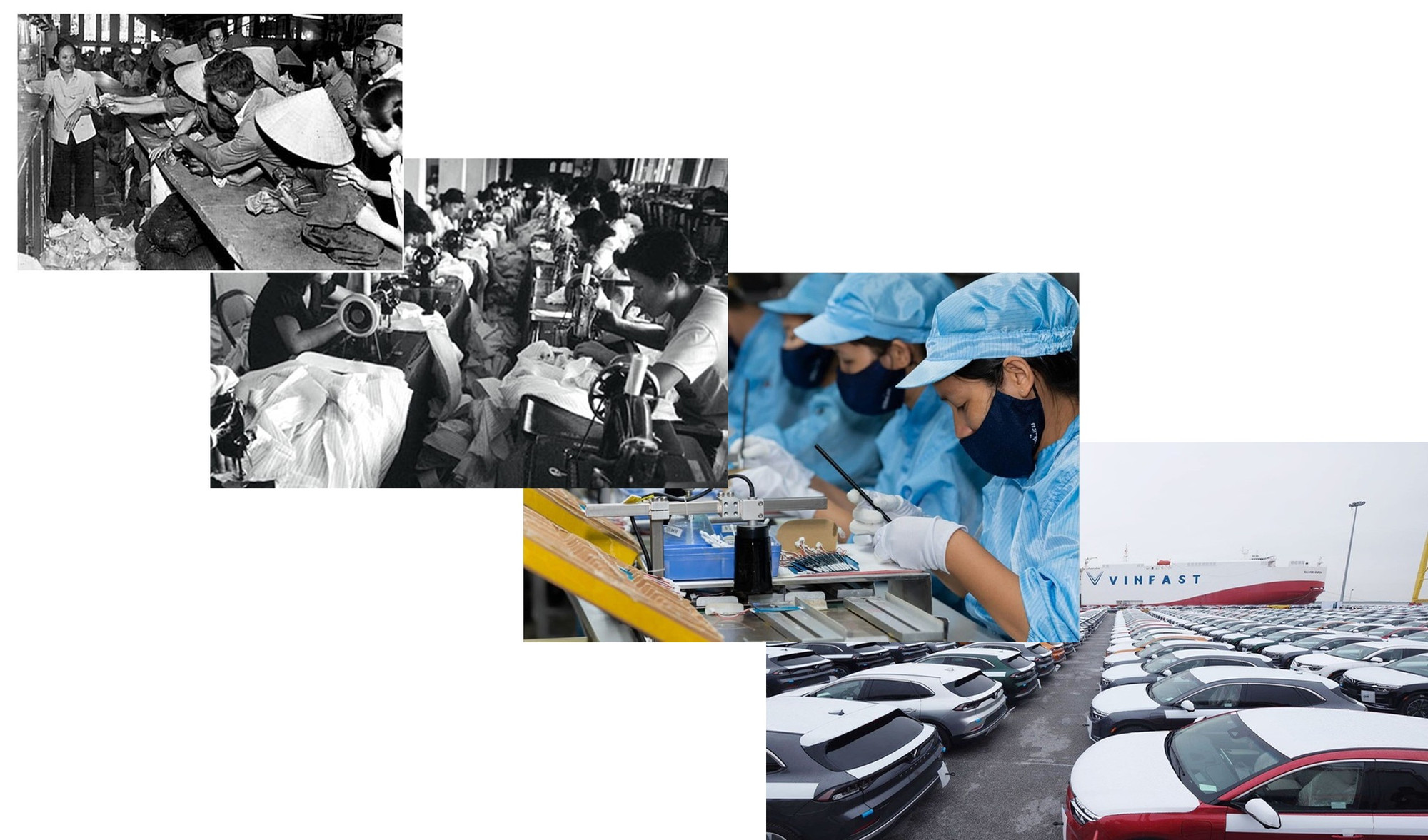
The documents of the Tenth Party Congress in 2006 marked a significant advancement in perspective and understanding, emphasizing: “Eliminate all barriers, create a favorable social psychology and business environment for the development of private enterprises without restrictions on scale in all industries and fields, including key sectors of the economy, that the law does not prohibit.” The documents of the Eleventh Party Congress in 2011 further highlighted: “Perfect the mechanism and policies to promote the strong development of the private sector, making it one of the driving forces of the economy.”
Subsequently, the documents of the Twelfth Party Congress in 2016 and the Thirteenth Party Congress in 2021 continued to emphasize: “Perfect the mechanism and policies to encourage and facilitate the strong development of the private sector in most industries and fields, becoming an important driving force of the economy.” The journey of 40 years of Renovation is closely associated with the Party’s orientations and perspectives on the private sector.

The documents of the Party Congresses, especially Resolution No. 10-NQ/TW of the 12th Central Committee (2017) on developing the private sector into an important driving force of the socialist-oriented market economy, the Resolution of the 13th Party Congress (2020), and most recently, Resolution No. 41-NQ/TW of the 13th Politburo (2023) on building and promoting the role of Vietnamese entrepreneurs in the new era, are of great significance.
Up to now, Resolution No. 68-NQ/TW dated May 4, 2025, of the Politburo on developing the private sector has officially affirmed that the private sector is an important driving force of the national economy.
Masterise Group: Elevating Living Standards Through Private Enterprise, Contributing to Nation-Building
As Vietnam’s urban landscape undergoes a transformative phase, the concept of “standard of living” is no longer a distant dream. It is being shaped, day by day, by businesses that understand the importance of balancing long-term responsibility and vision with economic interests – and Masterise Group is leading the way.
The Vietnamese Economy Over 80 Years: From Founding to the Age of Rising
The Vietnamese economy’s 80-year journey is a testament to the nation’s resilient spirit, innovative vision, and aspiration for advancement. However, new challenges lie ahead, including the middle-income trap, the pressures of green and digital transformation, and the imperative for institutional breakthroughs. These are not merely economic issues but also a historical call to action to propel Vietnam into a developed and prosperous nation by 2045.
The Private Sector: Who Leads, Who Binds?
The private sector in Vietnam, often likened to the economic powerhouse driving the country’s growth, is showing signs of stagnation after years of robust development. As the nation aspires to ambitious goals over the next two decades, identifying and addressing these bottlenecks are crucial to getting the engine running smoothly again.


